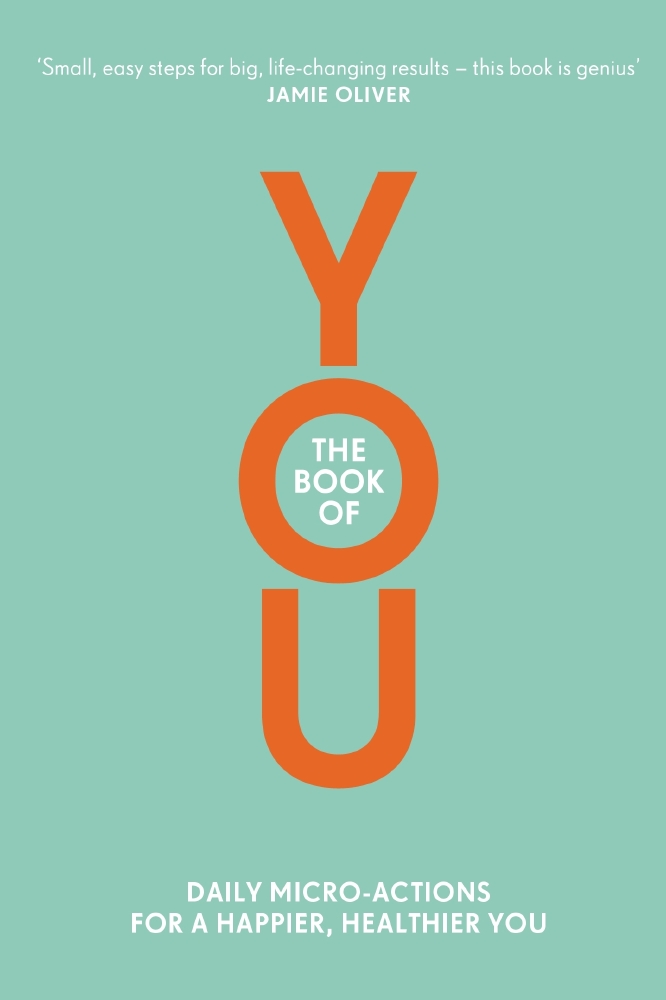By Nora Rosendahl, COO & CFO of YOU

The Book of You
About two years ago I changed the course of my career abruptly and completely in one weekend. If someone had told me a week earlier what was about to happen, I would have laughed it off. But it did happen, and I'll try my best to explain it.
For many different reasons I was in a place in my life where I wasn't sure where I wanted to go next. I felt utterly lost. Looking back it's easy to see the steps that eventually led me to completely change my career, but back then it was partly haphazard. Nevertheless, here are the 10 things I did:
1. Book in some alone time
All of us react differently when we feel overwhelmed. My preference is to be alone and properly think it through - really embrace my introspective and contemplative side. My parents were away for the weekend and I was dog sitting in a big house with a beautiful view and a full fridge - perfect start.
2. Make yourself comfortable
"Outer order, inner peace" is how I often feel. It's difficult to let your thoughts flow freely if you're cold, hungry, tired, or wearing uncomfortable shoes. So I made myself comfortable - I had a good night's sleep, a solid Saturday brunch and put on my comfiest pyjama pants and woollen socks.
3. Write down your feelings
The first thing I did (which I've later learned is a method used in many similar interventions) was to just start writing. Not specific topic, and only one rule: it has to be honest. Even if your text makes no sense, at least you've begun to open up the floodgates (warning: it may also make you REALLY stop and think).
4. Create a list (or two)
My free flowing thoughts showed me that I was really struggling to find meaning and "my place in the world" at the time. I decided to dig deeper by creating two lists (I'm BIG on lists): "What are my strengths?" and "What do I feel passionate about?".
5. Take the long perspective
My dad has this three-stage career philosophy, each 10-15 years long: "Learn, Earn and Return" (first you make mistakes and learn, then you earn enough to secure your family and retirement, and finally you give back). I love it - and it's really encouraged me to take the long perspective. So I asked myself - "what do I want to 'return' at the end of my career?" (in my case this generated another list).
6. Search for inspiration
By now I knew a lot more about myself and where I was. Next: the world. What were the big trends? What industries were growing? What type of jobs were posted? A few simple Google queries helped me discover the three topics that could fit my strengths, passions, and long-term perspectives: digital health, alternative energy, and machine learning.
7. Take a micro-break
By this point I had exhausted my mental capacity. I wish I could say I meditated or watched the sundown to clear my head, but really - I watched funny YouTube clips (I recall a really good one with a Swedish comedian and a banana). Whatever gives your mind a break.
8. Distract yourself
I could have done many things at this point, but I decided to distract myself and go for a run. While I'm running I often subconsciously process thoughts and many times I come back with some of my best ideas (even if I don't, it's always good exercise). So out I went.
9. Reach out
To be honest, this step could have come earlier and for many the preference probably is to reach out to others early. While I was out for my run I stopped to call a few people to talk, bounce off some ideas, and simply hear myself explain the situation out loud to make better sense of it.
10. Make a decision - or don't
This next step I cannot recommend in all situations. Most people probably need more time to reflect, discuss and weigh different options before coming to a conclusion. I did something very atypical for me: an intuitive decision. During one of those calls I asked a spur-of-the-moment question: "What if I joined your team?". And that's the road I'm still on today, two and a half years later.
The Book of YOU: Daily Micro-Actions for a Happier, Healthier You, Penguin Books £8.99

